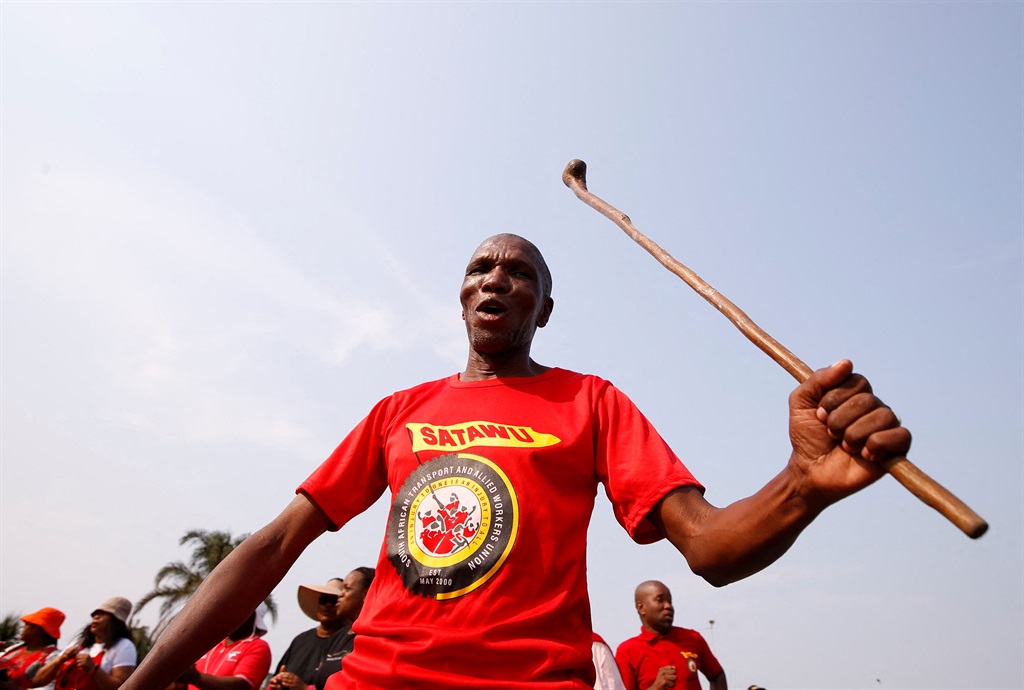
As over half of the striking workers at Transnet return to work to end a strike that entered its second week this week, supply chain management body Sapics said that for each day that workers were on strike, it would take at least a week for supply chains to recover. On Monday, the majority union at Transnet - UNTU [United National Transport Union] - agreed to a three-year wage settlement backdated to April 1 2022. The agreement included a 6% wage increase in the first year, 5.6% in the second year and another 6% wage increase in year three. This agreement immediately ends the strike by 54% of bargaining unit workers who belong to UNTU. It also applied to employees not belonging to the majority union.
The CCMA [Commission for Conciliation, Mediation and Arbitration]-facilitated agreement will make things difficult for the second-largest union, Satawu [SA Transport and Allied Workers Union], which has been holding out for at least a 7.6% increase.
Union’s spokesperson Amanda Tshemes said UNTU’s action was disgusting. She added that the agreement would not make their action less effective:
“We started the strike based on our reasons and when we had our dispute against Transnet, UNTU had its own dispute, so as much as we were fighting for the same goal, we were each doing our own thing. We have a mandate from our members and we will not back down because a majority union decided to sign and sell out workers.”
• Year 1: a 6,0% increase in the basic wage for levels H to L, and 6,0% on the annual cost-to-company package for level G.
• Year 2: a 5,5% increase in the basic wage for levels H to L, and 5,5% on the annual cost-to-company package for level G.
• Year 3: a 6,0% increase in the basic wage for levels H to L, and 6,0% on the annual cost-to-company package for level G.
• An increase in the medical aid subsidy, in line with the increases in the basic wage, over the duration of the agreement. The increase in the medical subsidy for the 2022/23 financial year will be implemented from October 1 2022.
• An increase in the housing allowance commencing from the year 2023/24 and 2024/25.
• The back-pay for the period April 1 to September 30 2022 will be paid in two tranches – three months’ back-pay on November 15 2022, and three months’ back-pay on January 16 2023.
Sapics CEO MJ Schoemaker said: “There were strikes in 2010, which lasted 17 days, and it took seven months to recover. So you can imagine the impact of every day they were striking. Now, in 2022, it will take at least weeks to recover, hopefully, they will get things moving because supply chains are really suffering.”
READ: Strike is a death knell for small business
The strike had already cost the country’s ailing economy hundreds of millions and there were jitters about how devastating it would be on the fourth quarter of economic growth and overall growth for 2022.
Earlier in the day, presidential spokesperson Vincent Magwenya said:
“We also hope that all parties will act in the interest of the country, and in the interest, sustainability and growth of our economy.”
Meanwhile, breathing a sigh of relief, Transnet said: “The priority in the immediate is clearing any backlogs across the port and rail system – prioritising urgent and time-sensitive cargo, and implementing recovery plans, working with industry and customers.”




 Publications
Publications
 Partners
Partners









